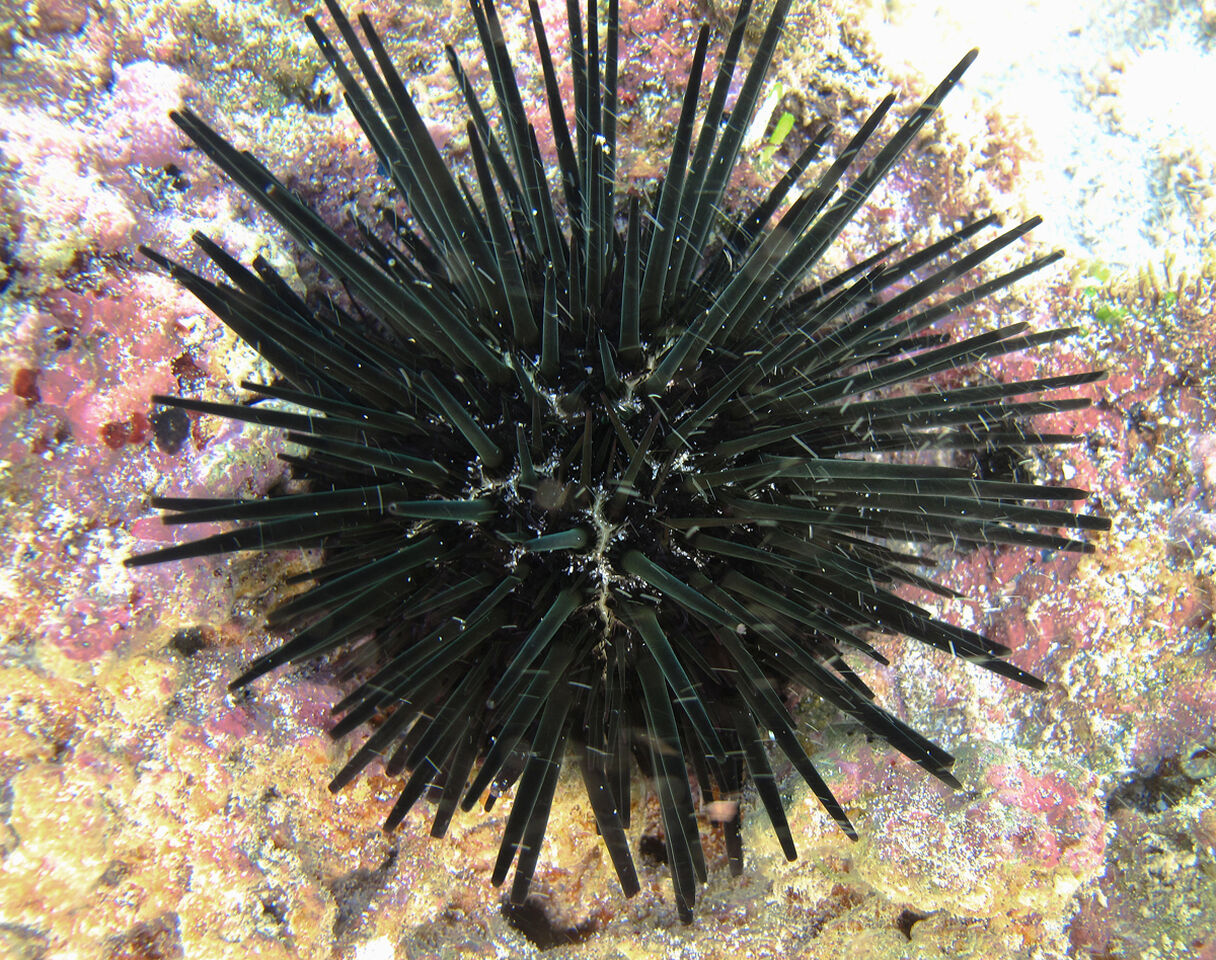Appearance and lifestyle:
Pot-hole urchins (Stomopneustes variolaris) are a large, round urchin with medium length spines that can reach about half its diameter in length. Its body is black, and its spines are purple with a metallic sheen, rarely greenish at the tips. They are easily distinguished from similar species, eg. Needle urchins, by the presence of 5 grey zig-zagging sutures on their upper surface.
Habitat:
Multiple generations of pot-hole urchin slowly excavate caves for themselves – hence their name. This multi-generational behaviour has resulted in pot-hole urchins having a patch distribution, occurring in huge numbers where they have been able to dig these excavations, eg. The Philippines and Sri Lanka, but rarer in other parts of the Indo-Pacific.
Diet:
They emerge from hiding spots at night to eat scraps of floating algae.
Threats:
Habitat loss, predators, climate change etc.
